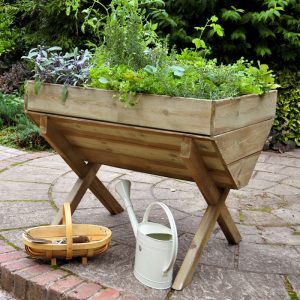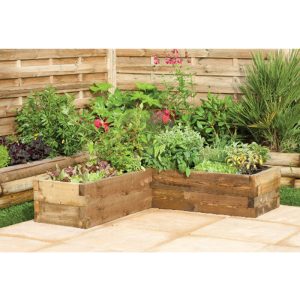Constructed from sturdy and lightweight plastic, the La Hacienda Oban Light Oak Whiskey Barrel Garden Pot mimics the charming appearance of aged oak wood. Ideal for enthusiasts of classical garden aesthetics, this generous barrel-shaped planter offers a durable and easily maintainable substitute to authentic materials.
Designed for versatile utilization, this hanging container is suitable for both indoor and outdoor settings due to its robust composition. Resistant to frost-induced shattering or cracking, it can remain outdoors throughout the year without issue. Furthermore, being lightweight, it can be effortlessly relocated around the garden. The Oban Barrel underscores its environmental friendliness by being crafted from recycled plastic.
Enjoy the convenience of home delivery with the La Hacienda Oban Light Oak Whiskey Barrel Garden Pot, eliminating the need to visit a physical garden store. Our swift and complimentary* shipping service guarantees prompt delivery to your doorstep.















































